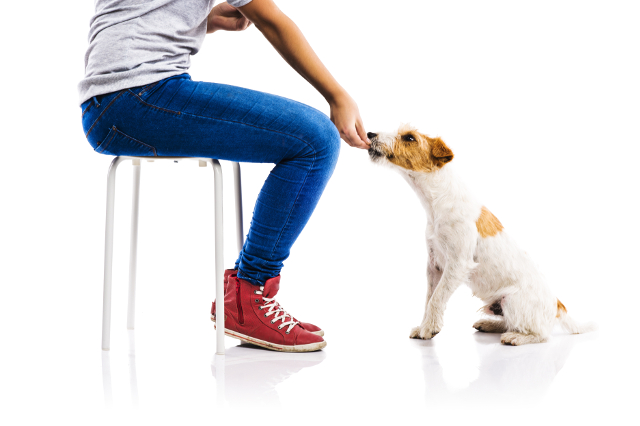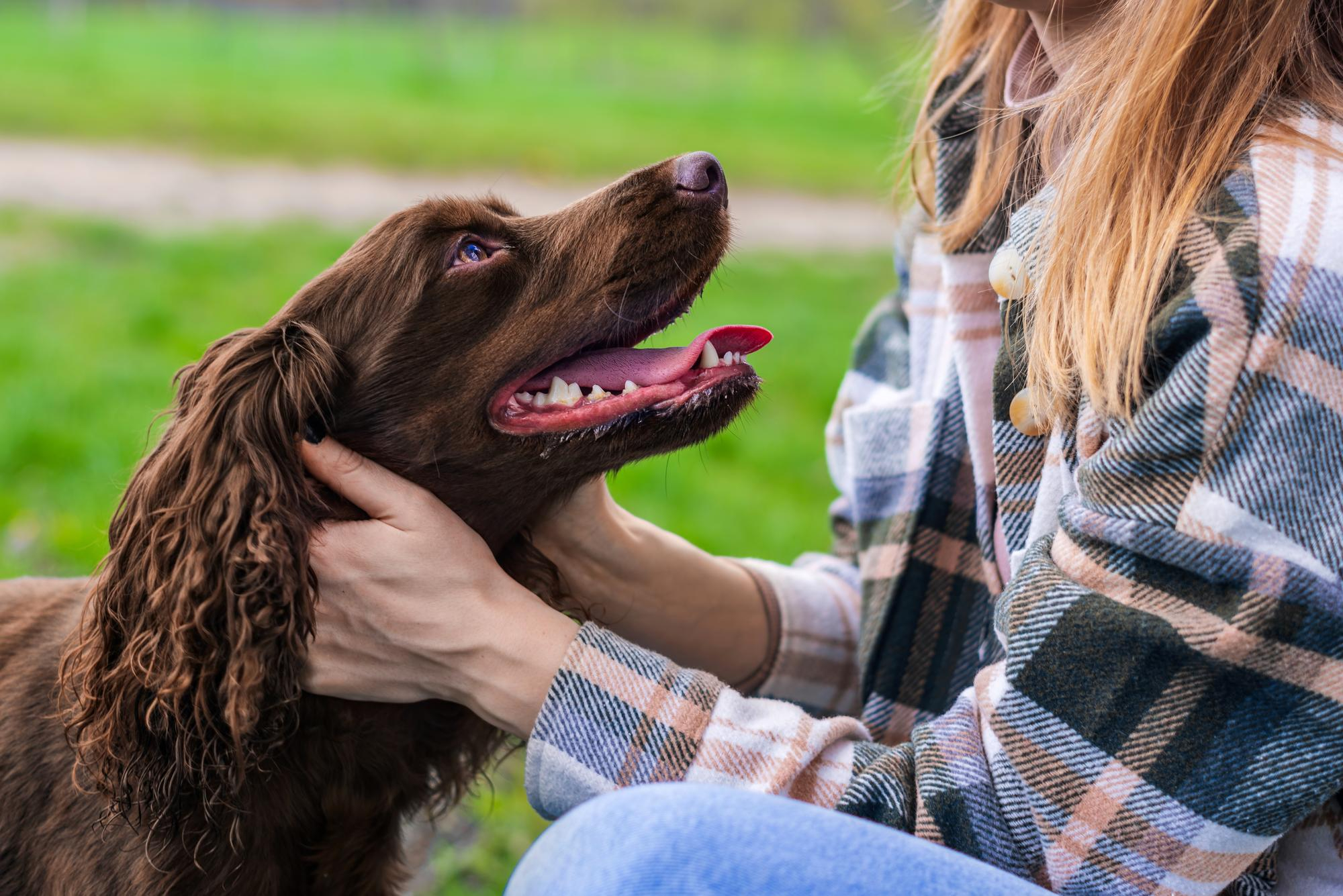This is a question our veterinary staff gets asked a lot at our clinic! Dogs are dependent on their pet parents to supply everything necessary for them to be healthy and happy. They need a healthy diet to support growth, healthy bones and teeth, a shiny thick coat, a strong immune system to ward off diseases, and a high energy level.
Safe supplements can be added to your dog’s food to improve its nutritional value and to assist in the treatment of various health issues. As well, there are many natural remedies that can be introduced to enhance a dog’s happiness and well-being, or are starting to develop problems as they age.
It’s best that you always consult your veterinarian about supplements and natural remedies.
Quality food for your dog is a good investment and it is important for your dog to have a high-quality well-balanced diet.
Specific problems require special supplements
- Glucosamine – This is the most commonly recommended supplement for dogs with stiff joints and mobility issues or for dogs with arthritis. It helps to reduce inflammation.
- Omega 3 Fatty Acids – This is the second most popular supplement. It essential fatty acids that are needed to improve a dog’s coat, skin health, and help reduce inflammation.
- Antioxidants – These supplements, such as vitamins C and E, help reduce the negative effects of aging, improve memory, reduce the risk of heart disease, and reduce inflammation. Good quality well balance diets contain these important supplements.
- Probiotics – These supplements increase the growth of good bacteria and yeasts that live in the digestive system. Probiotics are especially important to restore balance in the digestive system after a stressful incident such as vomiting, diarrhea, or the use of antibiotics, etc.
Be cautious with supplements
- Use only supplements made for animals and prescribed by your veterinarian. Never substitute the dog supplements with those intended for human consumption; those are sometimes dangerous for dogs.
- Carefully follow the dosages at the direction of your veterinarian. Never exceed the recommended doses.
- Remember that supplements do not produce overnight results. Be patient and expect results to show up slowly with regular usage over time.
- Don’t ever expect impossible claims to be true. Supplements cannot replace prescription medication when your dog is ill, and they cannot cure cancer or any other serious disease.
Add to Your Pet’s Health and Happiness with Natural Remedies
We all know that it is important for your pet’s health and happiness to provide a balanced diet, and to give your pet as much companionship as your schedule will allow, coupled with sufficient daily exercise. However, there are natural remedies you can also use to keep your four-legged best friend mentally healthy and alert and to calm your pet when necessary.
- Change-up the exercise routine to keep your dog alert. Dogs love routine and, when you start on your walk, will turn and pause at all the usual places; however, it is a good idea to introduce some variety now and then. Take a new route or reverse the one you usually take.
- If throw-and-fetch makes your pooch happy, find a place where you can play the game with a ball or a Frisbee or another suitable toy.
- If your dog loves to splash in the water, head to the beach or a place where dogs are welcome to swim and enjoy the water.
- Add a few extra short walks to your day, or take doggy on a run, or to a park where he or she can run off-leash.
- Allow your dog time to stop and smell the roses or the stinky stuff—but stop him or her from eating or rolling in whatever it is!
- Mental stimulation. Give your dog some opportunities for mental exercise and stimulation.
- Dog parks are great places for your pooch to interact with other dogs.
- If your dog doesn’t make friends easily, try the occasional doggy date with a friendly neighbourhood dog and owner.
- Teach your dog tricks to help spice up his or her life. Start with the basic commands of “sit,” “stay,” and “down,” and to come when his or her name is called. You can then move on to teaching your dog to shake hands, roll over and play dead, or to bark on command. You will need lots of patience and treats, and a signal such as snapping your fingers, or a hand signal, or a word. Keep the sessions short—no more than 10 minutes—and stop if you or your dog find yourselves losing patience or stressing out.
- Add new toys and interactive puzzle toys to your doggy’s toy box.
- Music can help calm a stressed dog. If you have a nervous dog or one that becomes anxious when travelling or when a routine is changed, try adding some music to the scene. Yes, dogs do like music, especially classical music. Bach is particularly soothing and seems to be a favourite with most animals. Interestingly, they don’t react well to heavy metal, rock, hip hop, or jazz.
- Massages and grooming. Grooming your pet is great for bonding, and so are massages.
- Grooming: Use a brush daily or as often as you can to keep your dog’s coat clean, to keep it free of mats and tangles, and to reduce unpleasant smells.
- Relaxing: You can help dogs relax by petting and massaging them when they are stressed, such as during a thunderstorm or when they are restless. Pet your dog from the top of the head with long, even strokes down the spine and over the tail. Repeat this motion several times, increasing the pressure gradually—but not on the lower spine—and then rest your hands on the head and the high point on your dog’s hips. These areas control relaxation responses.
- Sore joints: Massage can ease the stiffness and pain in a dog’s joints resulting from overexertion, inactivity, or aging. Pet the areas around the joints to warm the locations and then apply gentle compression to them. Finish off by gently petting and stroking the areas again.
Supplements can be added to increase the nutritional value of your dog’s diet and to ease various health problems. Be sure and check with your veterinarian to make sure the choices being made are appropriate ones. Other natural remedies can be used to enhance your pet’s well-being, alertness, and happiness. At the end of the day, your dog will reward you with a wagging tail and lots of affection!
Creative Commons Attribution: Permission is granted to repost this article in its entirety with credit to Hastings Veterinary Hospital and a clickable link back to this page.






